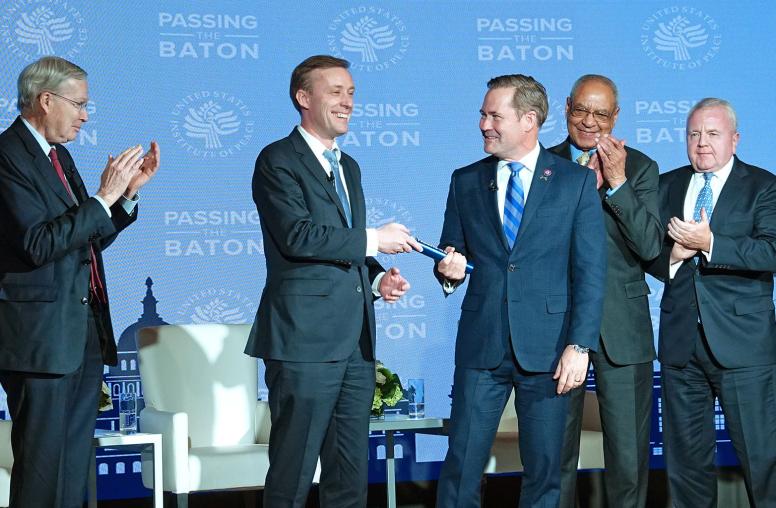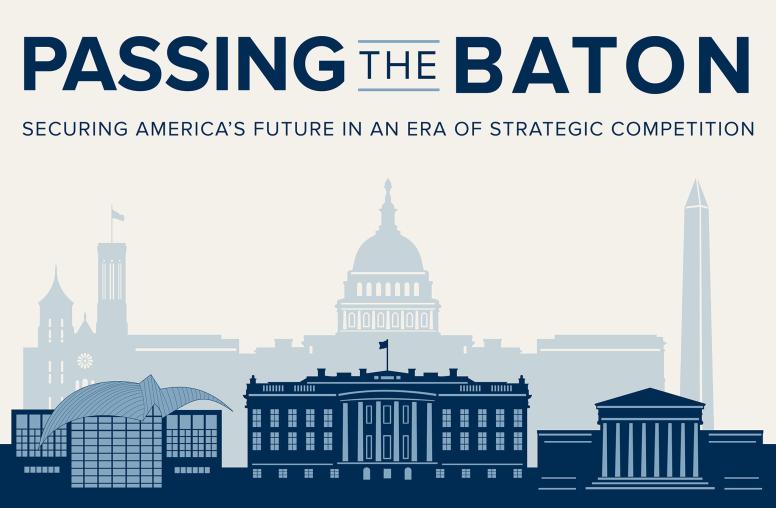U.S. Envoy to the Middle East Speaks on Peace at Acheson Lecture
Senator George J. Mitchell, special envoy for the Middle East, delivered the 2010 United States Institute of Peace (USIP) Dean Acheson Lecture, on Monday, May 24 in front of a packed audience.
For Immediate Release, June 1, 2010
Contact: Allison Sturma, 202/429-4725 or asturma@usip.org
(Washington) -- Senator George J. Mitchell, special envoy for the Middle East, delivered the 2010 United States Institute of Peace (USIP) Dean Acheson Lecture, on Monday, May 24 in front of a packed audience. Senator Mitchell was introduced by Richard H. Solomon, president of USIP and by Michael A. Dignam, president for Readiness & Stability Operations at Lockheed Martin Corporation, which sponsored the event. Closing remarks were made by Robin West, chairman of USIP's board.
Senator Mitchell's talk was preceded by a video of his peacemaking efforts in Northern Ireland -- part of the forthcoming exhibit of "Witnesses to War and Peacebuilding" to be featured in the Institute's new Global Peacebuilding Center in the new headquarters.
Senator Mitchell spoke about lessons learned from Northern Ireland and how, despite the vast differences between that conflict and the Israeli-Palestinian conflict, certain truths about international conflict still hold:
- Human history is in large part a story of conflict; the subject is not new;
- Conflicts are created by human beings and human beings can solve them;
- There is no such thing as a conflict that can't be ended;
- Peacemaking requires patience and perseverance and hope;
- There must be compromises and a genuine willingness to make peace.
Senator Mitchell said that in the case of Northern Ireland, having a deadline was important. "I was convinced that the absence of a deadline guaranteed its failure."
While cautioning that every conflict is unique and that no two conflicts are the same, Mitchell made the case for continued U.S. involvement in the peace process in the Middle East that the U.S. would be an active partner "every step of the way."
Taking a page from former President George W. Bush, Mitchell outlined a U.S. position that recognized a two state solution with a homeland for the Palestinian people just as Israel has a homeland for the Jewish people. He articulated the need for secure, recognized and defensible borders for Israel and a viable, contiguous, sovereign and independent state for the Palestinians. He expressed support for both Prime Minister Netanyahu and Palestinian leader Abbas, and re-stating the importance of reconciliation along the 1967 borders with agreed upon swaps of territory. He said that both leaders were capable of delivering peace if there is bold action and compromise and flexibility. "There is no such thing as a conflict that can't be ended."



